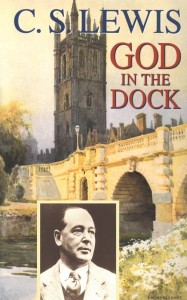 C. S. Lewis was a professor of literature, not a historian. That doesn’t mean, though, that he didn’t have some sage advice for those in my line of study. For instance, here’s a bit of solid guidance for historians in an essay called “Horrid Red Things,” found in a volume called God in the Dock:
C. S. Lewis was a professor of literature, not a historian. That doesn’t mean, though, that he didn’t have some sage advice for those in my line of study. For instance, here’s a bit of solid guidance for historians in an essay called “Horrid Red Things,” found in a volume called God in the Dock:
A historian who has based his work on the misreading of a document may afterwards (when his mistake has been exposed) exercise great ingenuity in showing that his account of a certain battle can still be reconciled with what the document records.
But the point is that none of these ingenious explanations would ever have come into existence if he had read his documents correctly at the outset. They are therefore really a waste of labour; it would be manlier of him to admit his mistake and begin all over again.
Although he’s applying that directly to people like me who deal with historical documents, it’s really a principle that applies to everyone in any walk of life. Honesty . . . integrity . . . a willingness to acknowledge when we have been wrong . . . should be the hallmarks of one’s character. Christians, in particular, have an obligation to model these traits.
That’s a deep enough thought for today. If we take it seriously, we transform our relationships.
